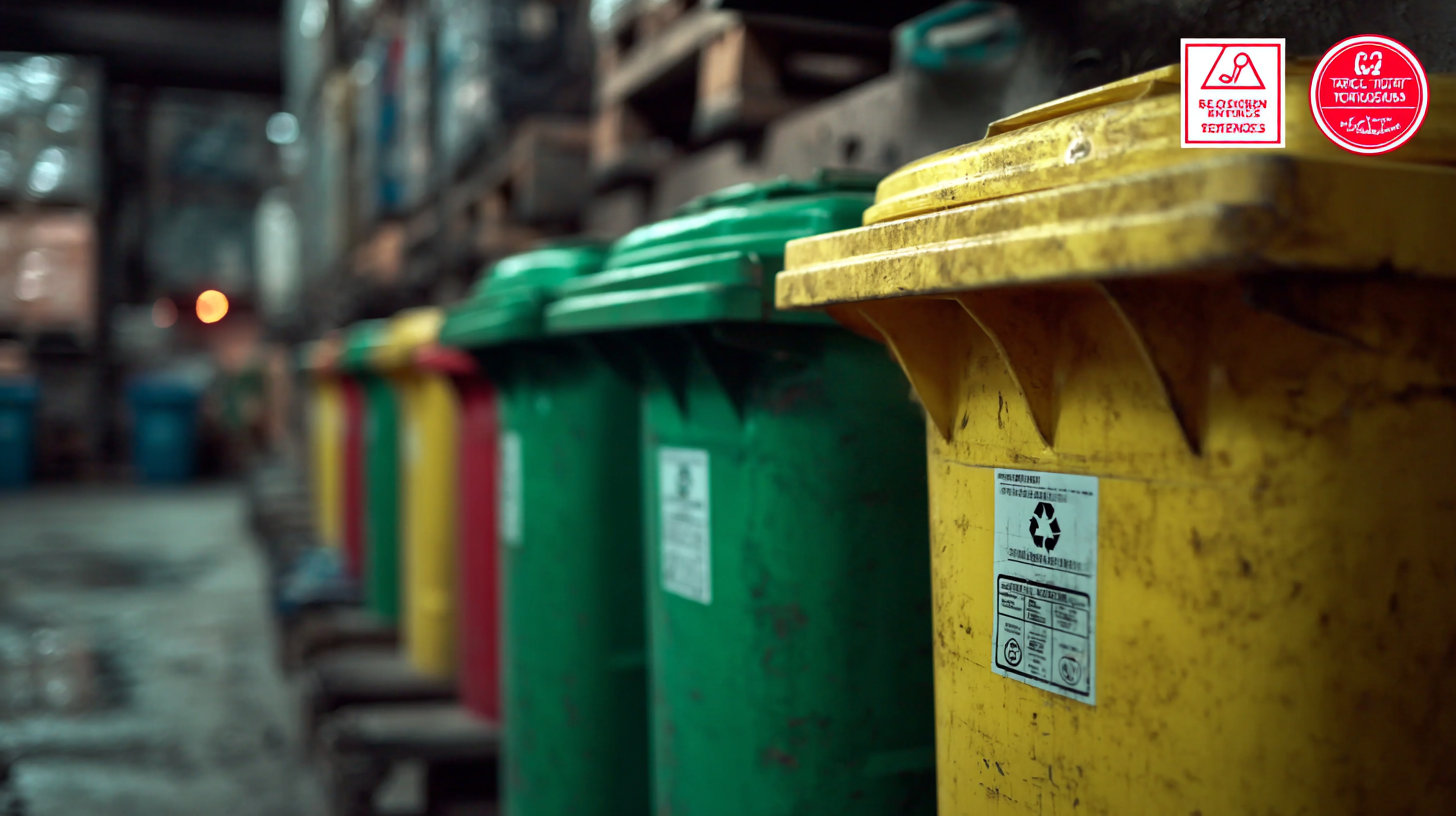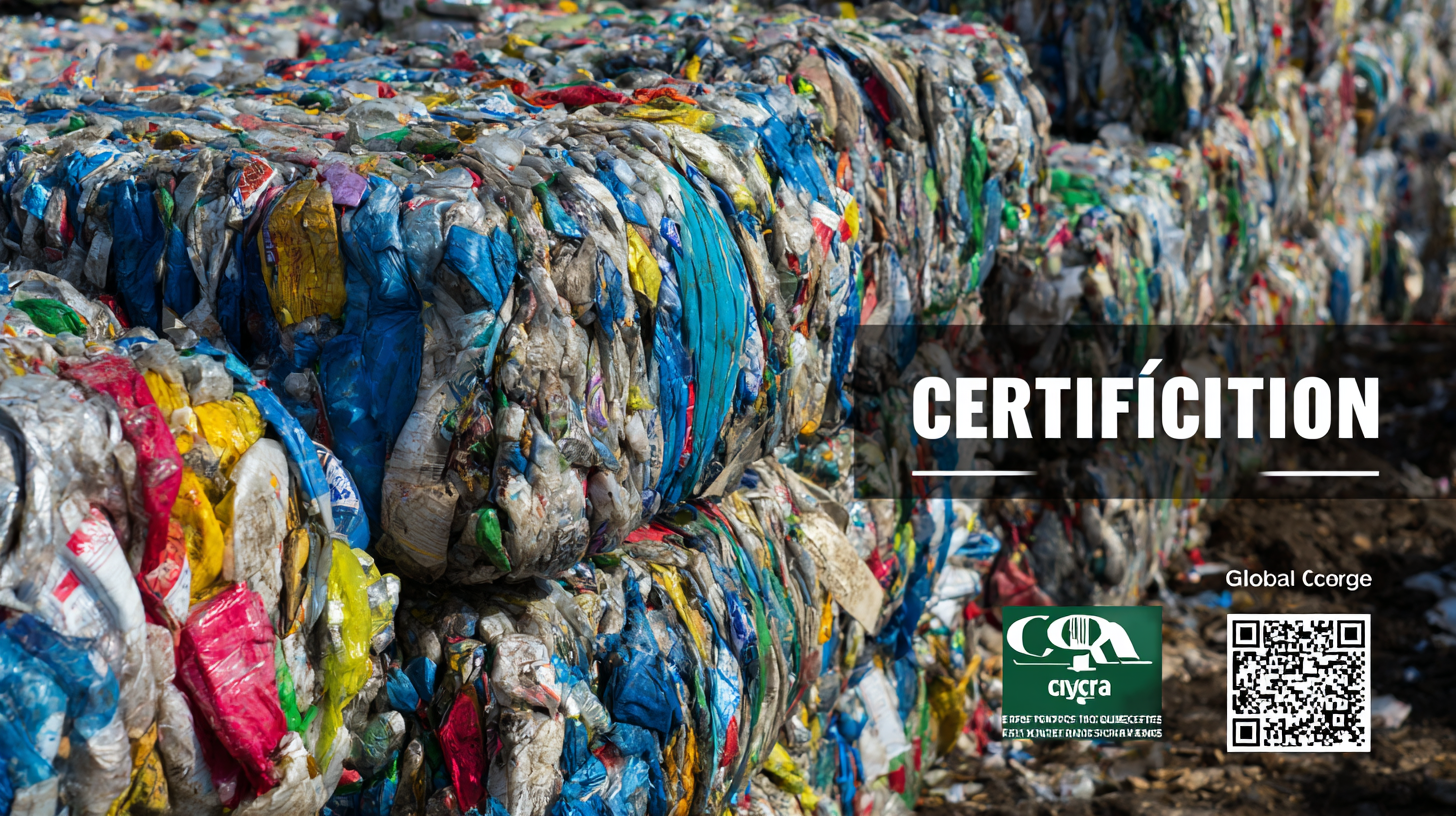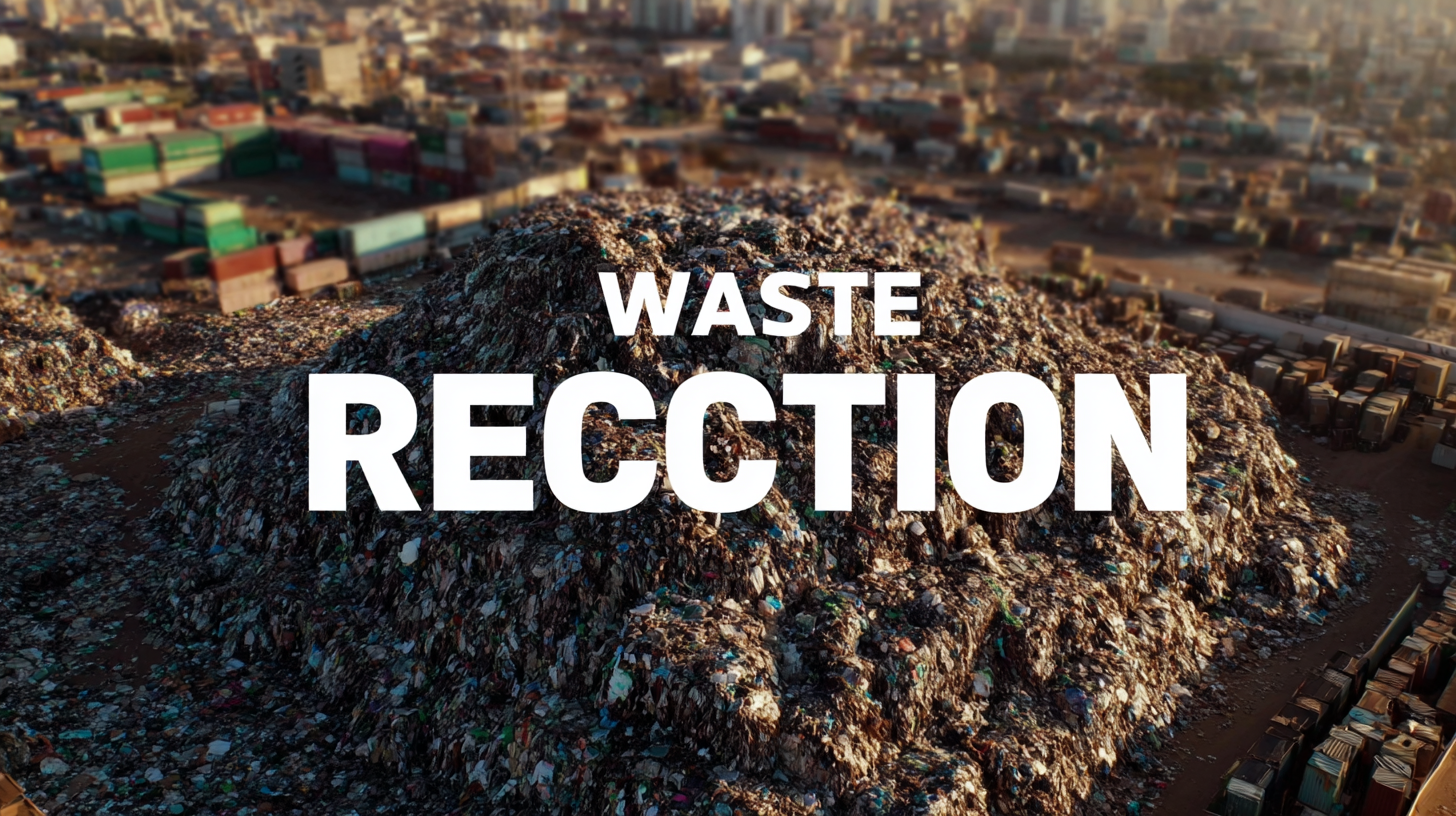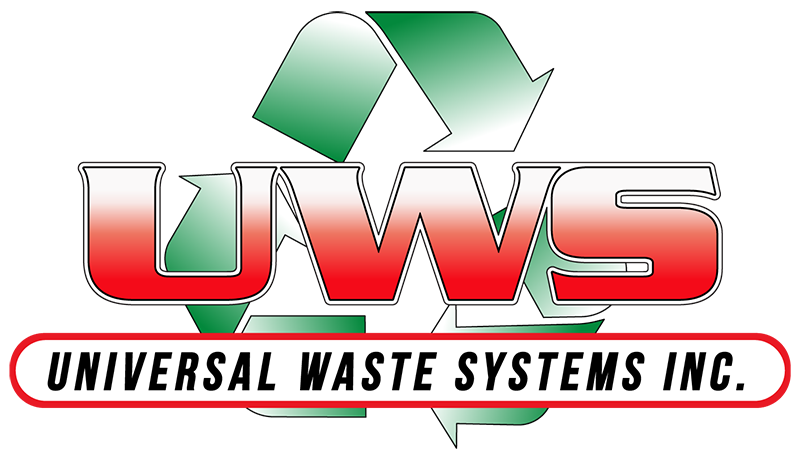Blog
Global Certification Secrets for the Top 10 Best Waste and Recycling Solutions in 2023
In 2023, the Waste and Recycling industry is at a pivotal moment, driven by increasing environmental concerns and advancements in technology. According to the World Bank, global waste generation is projected to reach 3.4 billion tons by 2050, highlighting an urgent need for effective waste management solutions. The International Solid Waste Association (ISWA) reports that over 1.3 billion tons of waste is currently mismanaged, exacerbating pollution and health issues worldwide. This pressing scenario encourages businesses to seek out innovative waste and recycling solutions that not only comply with regulatory standards but also enhance sustainability. In this blog, we will explore the top 10 best waste and recycling solutions available, offering a comprehensive comparison of their certifications and effectiveness in tackling the critical challenges of waste management in today's ever-evolving landscape.

Top Trends Shaping Waste Management and Recycling Solutions for 2023
The waste management and recycling industry is undergoing significant transformations in 2023, as evidenced by various trends and market analyses. A key area of focus is the digital waste management solution market, which showcases impressive growth, projected to expand significantly in the coming years. By 2032, this market is expected to reach a valuation of approximately $198.5 billion, growing at a CAGR of 13.6% from 2024 onwards. This growth is driven by increasing demands for smart waste solutions and efficient resource management.
Furthermore, the challenges of municipal solid waste (MSW) management remain pressing, particularly in developing regions of Asia and Africa. A comprehensive review from 2013-2023 highlights critical issues such as inadequate infrastructure, limited funding, and public awareness, which hinder effective waste management practices. Innovative recycling solutions are increasingly essential to tackle these obstacles. As stakeholders in the industry explore advanced waste and recycling technologies, partnering with local communities can lead to more sustainable outcomes and enhanced environmental stewardship. The continued evolution of both digital tools and community-based initiatives will be crucial in shaping the future of waste management and recycling globally.

Key Global Certifications Impacting Waste and Recycling Industries
The importance of global certifications in the waste and recycling industries cannot be overstated, especially as companies and organizations strive to combat climate change and promote sustainability. These certifications serve as essential tools for transparency, helping to differentiate genuine eco-friendly practices from mere greenwashing. As consumers become more discerning, the credibility of certifications plays a crucial role in ensuring that sustainability claims are trustworthy. For instance, the recently launched sustainability certification program highlights its significant impact on the hospitality sector, providing a roadmap for hotels to adopt greener operations.
As we move through 2023, several key certifications are gaining traction, each addressing different aspects of waste management and recycling. Programs focused on sustainability practices are expanding not only within specific industries but also across borders. By establishing rigorous criteria and transparency requirements, these certifications facilitate accountability and encourage continuous improvement. Moreover, they empower businesses to showcase their commitment to sustainability, ultimately fostering a more responsible approach to waste and recycling worldwide.
Market Analysis: Projected Growth and Challenges in the Waste Sector by 2025
As we approach 2025, the waste sector is poised for significant transformation, propelled by innovations in waste management technologies and shifts in consumer behavior. Market forecasts predict robust growth in areas like smart waste management, driven by advancements in IoT and AI. These technologies not only enhance operational efficiency but also promote sustainability, as they offer data-driven insights for optimizing waste reduction and resource recovery.
With the global smart waste management market expected to soar to nearly USD 14 billion by 2035, stakeholders are increasingly drawn to solutions that marry technological advancement with environmental stewardship.
However, challenges persist in the journey toward sustainable waste management. The complexities of the global plastics supply chain reveal a pressing need for comprehensive analysis and strategic intervention. With plastic waste becoming a significant environmental concern, the industry must navigate not only the regulatory landscape but also the evolving preferences of consumers who are more eco-conscious than ever.
The opportunity to innovate in waste management is vast, yet it requires a concerted effort from all stakeholders to address the multifaceted challenges in achieving a circular economy by 2025.
Innovative Technologies Revolutionizing Waste Recycling Processes
The waste and recycling industry is undergoing a transformative period, driven by innovative technologies that are revolutionizing how we process and manage waste. In 2023, several cutting-edge solutions have emerged that streamline recycling processes, reduce contamination, and enhance the overall efficiency of waste management systems. Advanced sorting technologies, including artificial intelligence and machine learning, are now employed to identify and separate recyclable materials more effectively than ever before. This not only maximizes recovery rates but also minimizes the volume of waste sent to landfills.

In addition to smarter sorting systems, the integration of smart sensors and IoT devices into recycling bins and waste collection vehicles is providing valuable insights into waste generation patterns. These technologies allow for real-time monitoring of waste levels, enabling cities to optimize collection schedules and routes. Moreover, composting and anaerobic digestion have gained traction as viable solutions for organic waste, converting food scraps into renewable energy and nutrient-rich fertilizers. As these innovative technologies gain traction, they pave the way for a more sustainable future, fostering a circular economy that emphasizes resource efficiency and environmental stewardship.
Expert Tips for Achieving Certification in Waste Management Solutions
Achieving certification in waste management solutions requires a strategic approach that combines compliance with regulations and a commitment to sustainability. To start, organizations should familiarize themselves with the specific certification standards relevant to their region or sector. This involves understanding the various frameworks, such as ISO 14001 for environmental management, which can serve as a foundation for developing management techniques that align with best practices in waste reduction and recycling.
Another key tip is to conduct a thorough assessment of current operations. This will help identify areas for improvement and highlight practices that are already compliant with certification standards. Engaging employees in this process is crucial, as it fosters a culture of sustainability within the organization. Training sessions and workshops can effectively inform staff about the importance of waste management practices, thereby ensuring collective participation in achieving certification goals. By prioritizing both compliance and education, organizations can enhance their chances of obtaining the necessary accolades in the waste management industry.
Request a Quote
Fill out the form below and one of our specialists will contact you to discuss your questions and needs.
